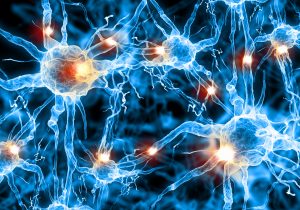 Memory refers to the mental processes which help us learn, retain and recall information i.e. the processing of incoming information, interpreting this information, organising and storing it into memories and being able to access this stored information when required.
Memory refers to the mental processes which help us learn, retain and recall information i.e. the processing of incoming information, interpreting this information, organising and storing it into memories and being able to access this stored information when required.
Memory can be impaired by brain injury. The impact can be relatively mild, the person affected appearing more forgetful, repetitive in conversation and struggling to follow plots in books or films. However, severe memory impairment is catastrophic and has major life changing implications, causing marked and traumatic losses and having a significant impact upon work and social life, family life, the ability to communicate and independence.
Memory impairment can be devastating for the person. It can cause high levels of confusion and disorientation, compromise the person’s awareness of their current situation, affect their ability to benefit from rehabilitation (struggle to re-learn skills, learn new ways to compensate for difficulties arising from brain injury etc), be highly anxiety provoking and affect their ability to make decisions. In some cases, it may contribute to the expression of challenging behaviour. The person will require a significant degree of understanding and support.
The cognitive processes involved in memory functioning can be impaired by damage to different regions of the brain and by damage to the white matter tracts (bundles of axons) that connect areas of the brain. A decrease in the oxygen supply to the brain can cause  injury, an anoxic brain injury . Areas of the brain responsible for memory are particularly sensitive to a decrease in oxygen, making them vulnerable should there be a prolonged disruption to the supply of oxygen to areas involved in memory formation or storage. Therefore, some people may appear to be physically able and retain many skills but may still experience catastrophic life changes related to memory impairment.
injury, an anoxic brain injury . Areas of the brain responsible for memory are particularly sensitive to a decrease in oxygen, making them vulnerable should there be a prolonged disruption to the supply of oxygen to areas involved in memory formation or storage. Therefore, some people may appear to be physically able and retain many skills but may still experience catastrophic life changes related to memory impairment.
Memory is not a skill operating in isolation from other cognitive abilities. To learn and remember new information, memory is highly dependent on other cognitive processes e.g:
- Attentional skills are essential. Attention to a task, event, situation or feeling is the first step in the process of remembering. If the person cannot attend and maintain control of their attention, their ability to lay down new memories and learn will be impaired.
- The person needs to be able to process and decode incoming sensory information in order to remember it. Information processing abilities are fundamental in establishing new memories/learning.
- The ability to communicate and understand language is essential to the process of remembering. If the person cannot understand information communicated to them, they will not be able to remember it.
- Effective visual and perceptual skills are important in order to learn how to navigate environments, recognise and remember new faces, learn and remember new ways of carrying out activities of daily living
- Executive functioning abilities underpin all other cognitive functions and are necessary for all new learning and the ability to apply new learning in different situations.
The following stages of ‘remembering’ provide a basic model of how these processes work:
- The person needs to be able to attend to information and maintain their attention.
- Following this, they need to be able to process and ‘encode’ this information. Encoding refers to how the information is interpreted in the brain e.g. the information is interpreted in ways that relate to how it looked, sounded, tasted, felt, and the associations, emotions and meanings connected with the information.
- Once encoded, the information is stored in memory systems.
- Stored memories can be strengthened by a process referred to as consolidation i.e. making the memories/learning stronger by repetition, practice, making associations etc. Intense emotional experiences (i.e. experiences with high emotional salience) will strengthen the consolidation of memories.
- The final stage is the ability to retrieve stored information as and when required.
(Powell, T, Malia, K (2005): The Brain Injury Workbook. Speechmark Publishing).
Impairments in memory functioning may occur at any of the above stages. Identifying the stages at which the memory process is impaired is necessary to support rehabilitation and the introduction of compensatory strategies.
Memory processes can be subdivided into different types, all of which are necessary to a smooth, efficient and integrated process. It is helpful to have an awareness of some of the ways memory can breakdown and what happens when a particular type of memory function is impaired. An awareness of different memory types and areas of breakdown can help us understand the person with memory impairment and how best to help and support them:
Post Traumatic Amnesia
Episodic Memory
Semantic Memory
Working Memory
Anterograde Memory
Retrograde Memory
Prospective Memory
Procedural Memory
Confabulation
Please note that the cognitive processes of memory are highly complex and there are many different theories and models of memory function that are beyond the scope of this section to go into detail. We have tried to signpost aspects of memory function that are most obviously important for a basic understanding of memory processes and can help us understand and support people who have memory impairment following brain injury.